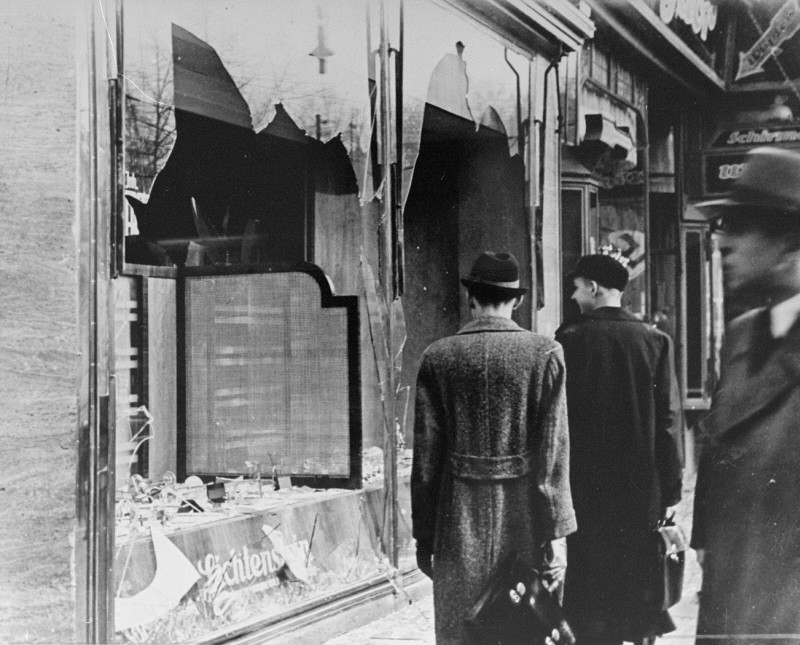Eighty-seven years ago, on the night of November 9–10, 1938, Nazi Germany unleashed a wave of coordinated terror against its Jewish citizens.
In a state-sanctioned pogrom later called Kristallnacht 91 Jews were murdered, and over 1,400 synagogues across Germany and Austria were set on fire. In the days that followed, 30,000 Jewish men were arrested and sent to concentration camps—most without cause. For many, it was the beginning of the end.
Kristallnacht marked a historic turning point: the transition from the discriminatory Nuremberg Laws of 1935 — the “Reich Citizenship Law” and the “Law for the Protection of German Blood and Honor” — to open, violent persecution. It was the prelude to what happened later.
The Warning
For the survivors who witnessed that night as children, the memory never faded.
This week, several of them — Walter Bingham, George Shefi, and Paul Alexander — issued a haunting public statement:
“In today’s climate, another Kristallnacht could happen again. The world today is no safer for Jews than it was 87 years ago.”
Now 99, Bingham still sees the same pattern emerging:
“Antisemitism, I don’t think, will ever fully disappear because it’s the panacea for all the ills of the world…”
When Hate Becomes Normal
Eighty-seven years later, the warning bells are ringing once again — and yet, few seem to listen.
The antisemitism of our time is no longer confined to the political fringes. It has become normalized, embedded, and unashamedly visible.
It seeps into every sphere — culture, sports, academia, and politics — and spreads across social media with staggering reach.
In 1938, mobs destroyed synagogues with torches and axes. In 2025, hate spreads through hashtags, videos, and chants in public squares. In Germany this week, police detained two people — who disrupted a Kristallnacht memorial in the town of Lahr and attempted to burn an Israeli flag. In Manchester a synagogue was deliberately set on fire after antisemitic posts circulated in local social media groups. The attack shocked the city, but for many Jewish residents, it felt disturbingly familiar. The broken windows, the smell of smoke, the fear of what might come next — it all echoed 1938.
Eighty-seven years later, even remembrance has become a target.
A Mirror to Our Time
Kristallnacht is not just history — it’s a mirror.
Every desecrated memorial, every anti-Israel rally that turns violent, every casual slur against “Zionists” is part of the same continuum.
We are once again witnessing a moment when antisemitism is being rationalized, excused, and reframed as something else.
It is being justified in academia under the guise of “free speech.”
It is tolerated in sports stadiums under the banner of “solidarity.”
It is amplified in politics, where moral clarity too often gives way to cowardice.
Every additional day of silence allows it to grow stronger. Report antisemitism online.

